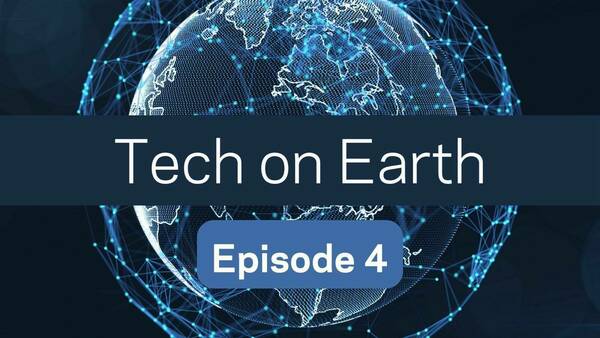
A philosopher whose research explores the ethics of emerging science and technologies, Dr. Shannon Vallor is particularly well known for her work in virtue ethics. She describes this as a tradition “rooted in the notion of character, and the way in which our actions and our habits shape our moral character,” a principle that resonates across a number of cultures.
“So I was really interested in this as a way to think about technology precisely because what technologies do when they are new is they transform our habits, they transform the things that we do every day,” Dr. Vallor said on the fourth episode of the Notre Dame-IBM Tech Ethics Lab podcast Tech on Earth. “And virtue ethics says that it's precisely the things that you do every day that determine the shape of your character and your ability to live well with others.”
Dr. Vallor is the Baillie Gifford Chair in the Ethics of Data and Artificial Intelligence at the University of Edinburgh's Edinburgh Futures Institute, where she directs the Centre for Technomoral Futures. Her use of the term “technomoral” is a way to emphasize, counter to the thesis of technological neutrality, that technology cannot in fact be separated from our values, and vice versa.
“This habit that we have of treating technology and morality as entirely independent, separate areas of study or interest is actually part of the problem of why our society is struggling right now to align innovation and economic growth and scientific progress with social and political flourishing. … So I talk about technomoral virtues, I talk about technomoral futures, because I want to remind us that until we begin to understand the integration of technology with our values and the mutually dependent relationship of these domains, we won't be able to solve the problems that are facing us today.”
Host Elizabeth Renieris also asked Dr. Vallor about the idea of moral debt—accrued when society puts off dealing with moral problems that it’s deemed tolerable at the moment—as it relates to artificial intelligence.
“AI systems are being used as Band-Aids or sort of easy technical fixes for big social problems, like the problems involved in distributing public benefits in a fair and equitable way, or the economic challenges of keeping competitive with the global economy,” Dr. Vallor said. “A lot of businesses, a lot of governments are rushing to use AI to save time and save costs, but they're often implementing AI in ways that are not robust, not particularly safe, that tend to amplify social injustices and inequalities. And those costs are going to come due; those costs always come due.”
Dr. Vallor noted that paying attention to ethics at the design stage is one important strategy for limiting this debt but that appropriate regulation, corporate responsibility in deployment, and systems that study how technologies are actually working out in the world are equally critical to restoring tech to its proper place.
“Not something that takes over from us,” she said, “not something that replaces us, but something that makes us better and makes us able to live better with one another. So I still very much believe in the power of technology as one way in which humans have always lived well. But we have to be able to understand the role that we play and the responsibilities that we have for ensuring that that alignment of technology and human flourishing is stable.”
A member of the faculty at the University of Edinburgh since 2020, Dr. Vallor was previously Regis and Dianne McKenna Professor of Philosophy at Santa Clara University. She studies how human character is being transformed by rapid advances in artificial intelligence, robotics, new social media, surveillance, and biomedical technologies.
Dr. Vallor is the author of the book Technology and the Virtues: A Philosophical Guide to a Future Worth Wanting and the editor of The Oxford Handbook of Philosophy of Technology, both published by Oxford University Press. Currently the chair of the Scottish government’s Data Delivery Group, she was the winner of the 2015 World Technology Award in Ethics from the World Technology Network.
Tech on Earth is a podcast aimed at bringing a practical lens to tech ethics around the globe. You can listen to the episode with Dr. Vallor by using the player below, visiting the podcast’s homepage at techethicslab.nd.edu/news-and-events/tech-on-earth (includes a written transcript), or finding Tech on Earth in your favorite podcast app.
Find the Podcast
